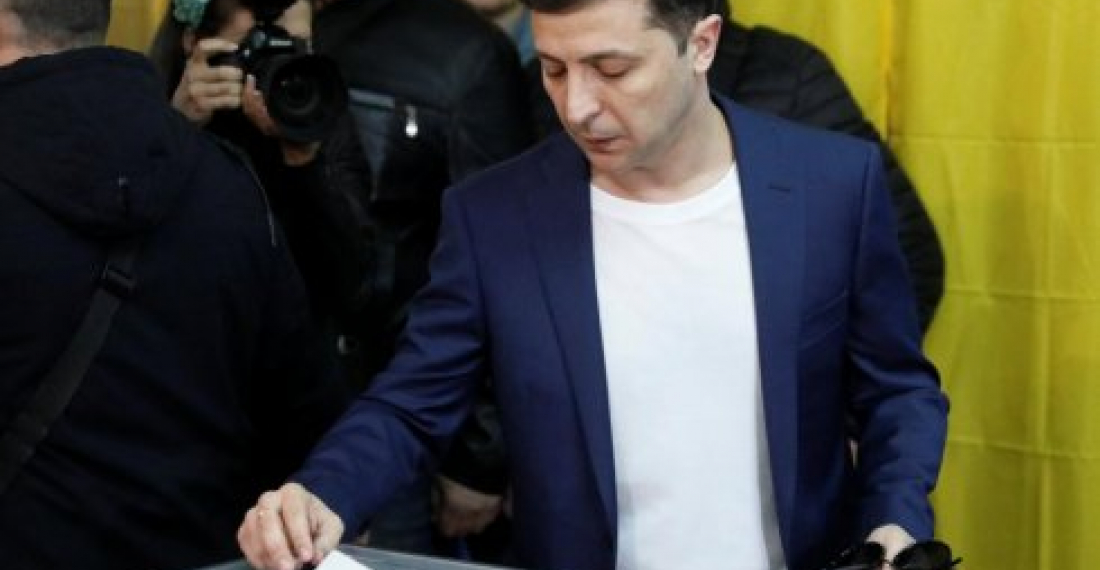Volodymyr Zelensky has won a run-off election to become the next president of Ukraine by a landslide, exit polls suggest.
The polls give him nearly 75% of the votes cast.
Mr Zelensky challenged incumbent president Petro Poroshenko. Mr Poroshenko has admitted that he has lost but has said he will not leave politics.
Ukraine's president holds significant powers over the security, defence and foreign policy of the country.
"I will never let you down," Mr Zelensky told supporters on Sunday.
He said: "While I am not formally president yet, as a citizen of Ukraine I can tell all post-Soviet countries: 'Look at us! Everything is possible!'"
source: commonspace.eu with agencies
photo: Volodymyr Zelensky casting his vote in the second round of presidential elections in Ukraine on 21 April 2019






